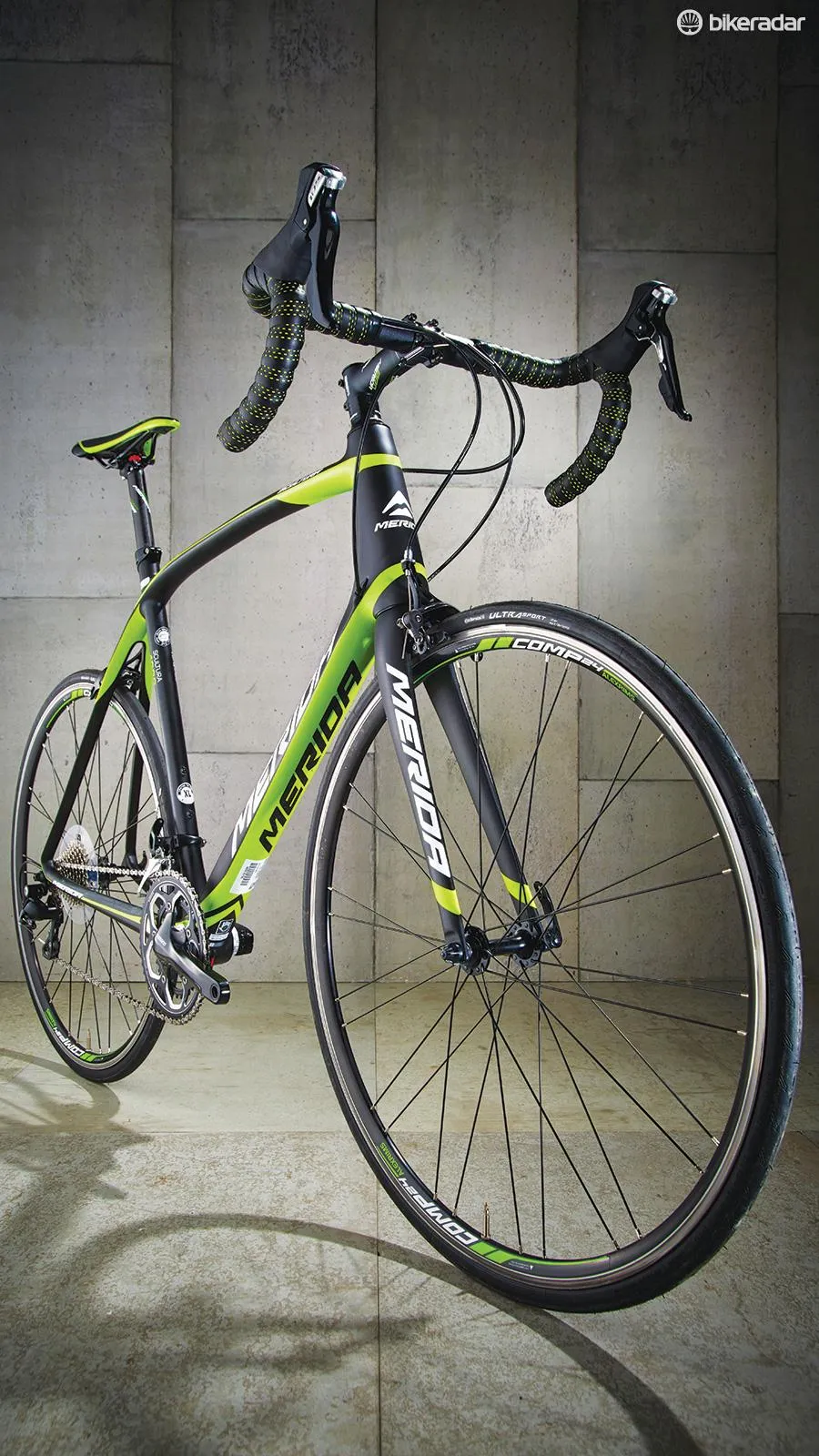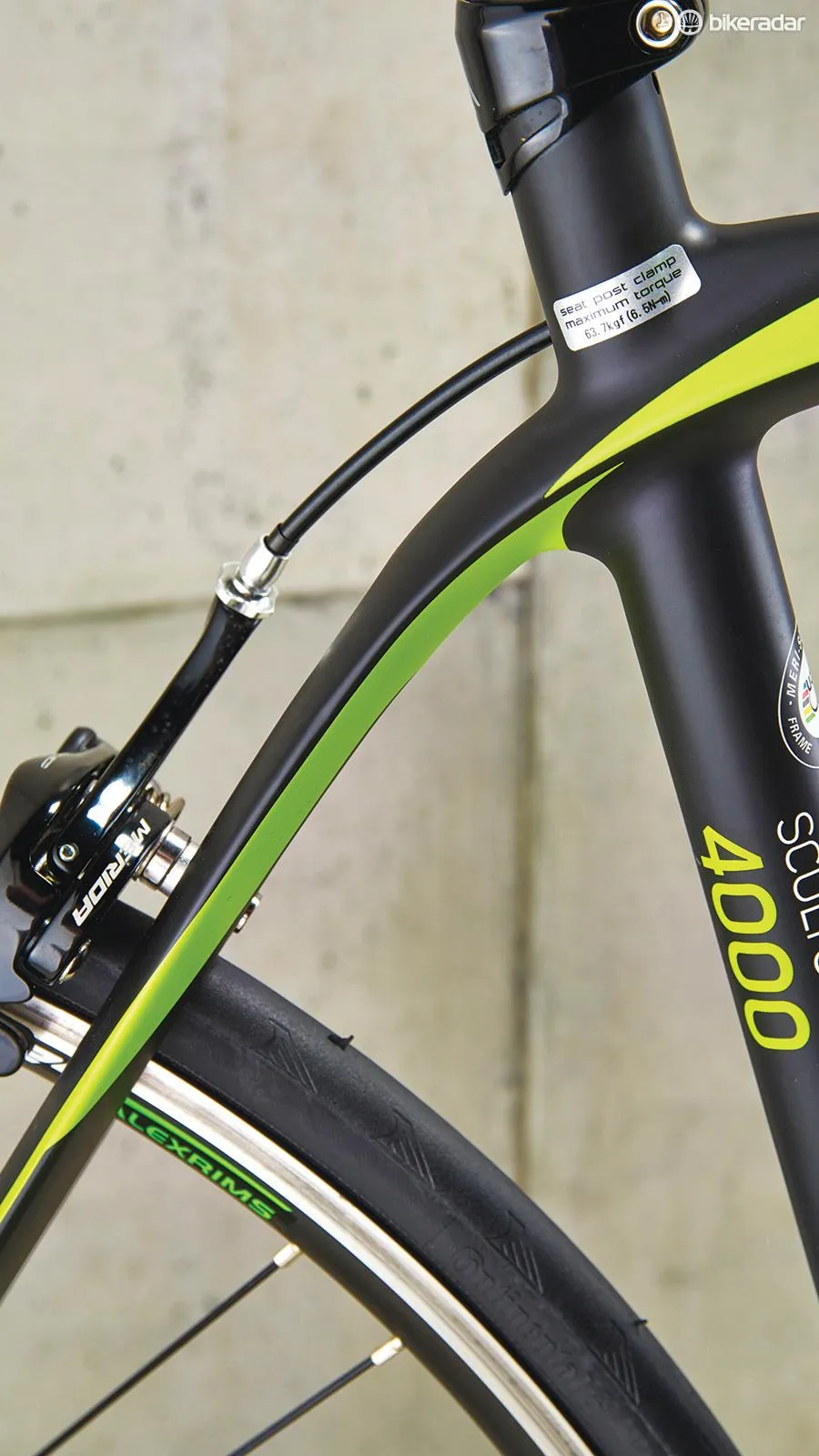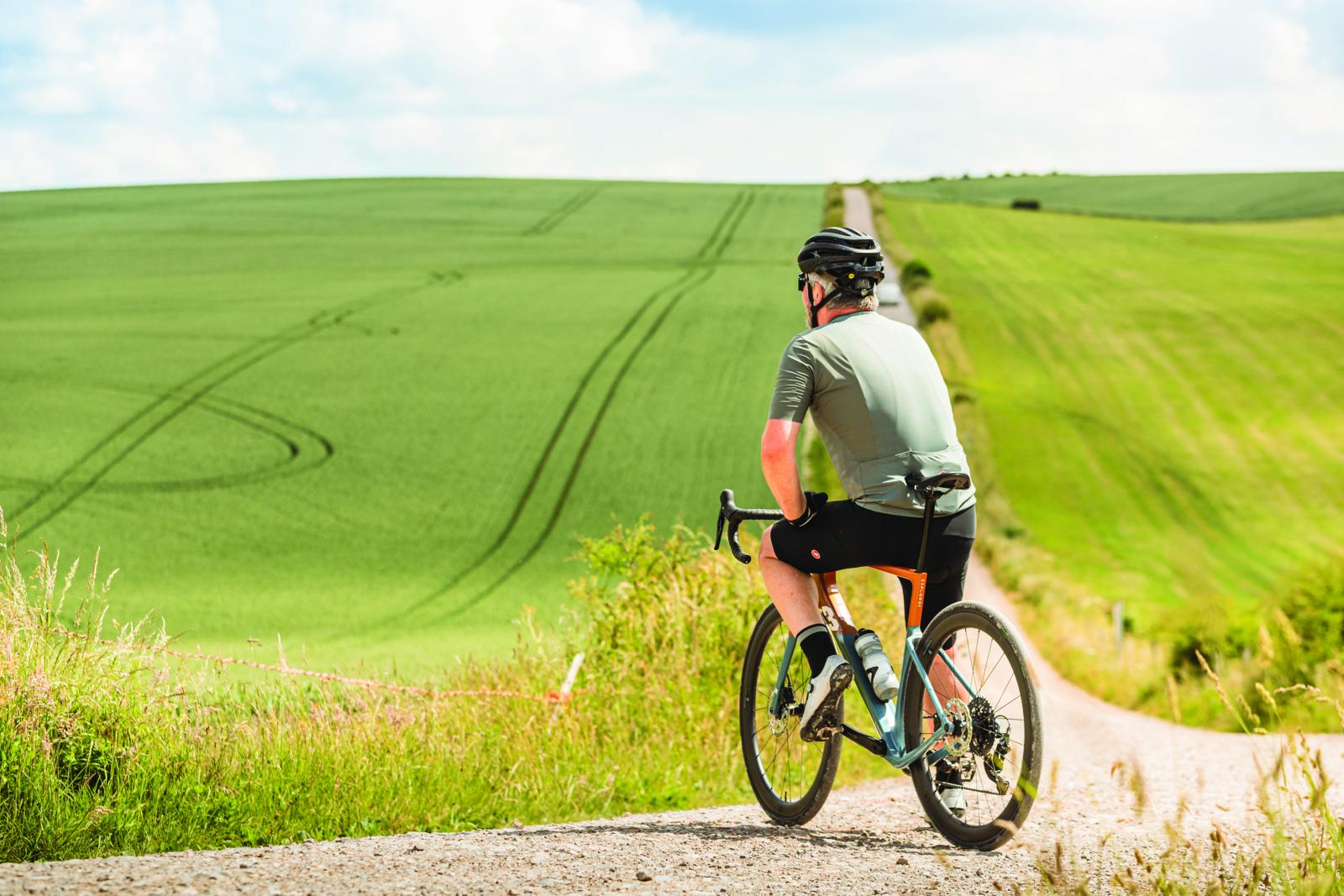Taiwan is home to a whole host of bike manufacturers, including two of the world’s biggest: Giant and Merida. Both companies make bikes under their own name, as well as frames for other brands, and they’re both title sponsors of pro-tour teams (Giant-Alpecin and Lampre-Merida).
- Merida Scultura 5000 review
- Merida claims world's lightest production bike with 680g Scultura 9000 LTD
Gram-shaving Scultura credentials
Merida, however, currently claims the distinction of being the manufacturer of the lightest frame, with its 680g Scultura 9000. That's too light for even the pros to use, because it falls foul of the UCI’s 6.8kg minimum weight limit in any sort of race build.

The front end is firmer than the rear but still comfy enough
As a result, Lampre-Merida’s riders are forced to use the Scultura Team frame, which weighs in at 750g. The Scultura 4000, which is the considerably more wallet-friendly version, may not match those weights, but at a claimed 1050g it’s hardly porky.
This is a bike that’s brilliant through turns, allowing you to hook up the perfect line with the minimum of steering effort
It’s good-looking too. The gently arching top tube swoops back to the seat tube and segues into a flattened wishbone that transforms into triangular, arching seatstays. All of this combines to give the frame a purposeful, muscular look.
And it’s more than just a look – the Scultura 4000 frame is hugely stiff. That stiffness is partly down to a feature that’s hidden from view: Merida’s ‘double chamber’. It’s a design that uses an internal rib that runs along the length of the main tubes, essentially dividing each of them into two chambers, which Merida says increases torsional stiffness without compromising weight or ride feel.
Confident cornering
The result is a bike that’s brilliant through turns, allowing you to hook up the perfect line with the minimum of steering effort thanks to the assurance its superb stability provides. This remains true even when the road surface is less than perfect; the Scultura’s arched stays and carbon seatpost absorb buzz and bounce at the back. The front also does a decent job of damping road noise, though it is noticeably firmer than the rear.

The frame and fork form an outstanding pairing, delivering a rock-solid pedalling platform
Costs have however been cut with the wheels. The Merida’s 24-spoke hoops are fairly hefty with their colour-matched Alex rims paired to Formula cartridge-bearing hubs. And although the soft and sticky Continental tyres grip well, even in the wet, they’re on the slender side for their 23mm size.
Despite these weighty wheels the 4000 copes well with climbs, aided by a well-chosen gear range and the slick shifting from a largely 105 setup. The bike’s only shortcomings are evident when you’re descending and riding in the wet.
The Merida Pro-branded Tektro brakes have nice, soft cartridge pads, but they give a lever feel that’s pretty inert. They only feel as though they’re starting to bite when you grab a fistful of the lever. You can adjust the cable to reduce the caliper travel, but that led to rim rub when sprinting.
Merida’s 4000 has a lot going for it. The frame and fork form an outstanding pairing, delivering a rock-solid pedalling platform, great handling and a smooth ride.
But its decidedly average brakes are a definite compromise, and we’d upgrade to lighter wheels. That said, considering the price and the ride quality, we’d have no reservations in recommending the Scultura.




